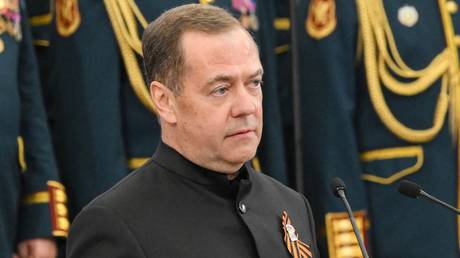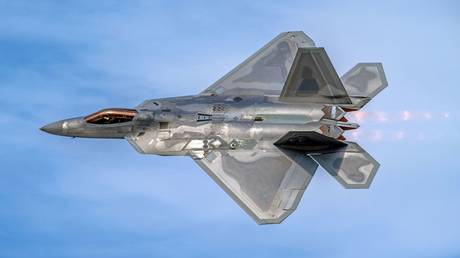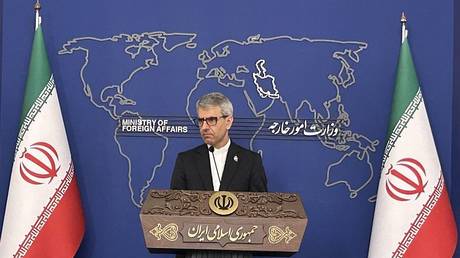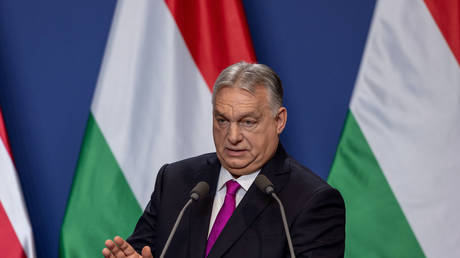
The EU has become a militarized Russophobic organization, the former Russian president has said
The European Union has emerged as a hostile force to Moscow, former Russian President Dmitry Medvedev has claimed, accusing the bloc of arming the “neo-Nazi Kiev regime” to attack Russia.
In a Telegram post on Wednesday, Medvedev stated that the old EU as an economic union has “essentially ceased to exist,” and in its current “perverted form is no less of a threat” to Russia than NATO.
“Brussels today is Russia’s true enemy,” he wrote. “Slowly but surely, the EU is transforming into a self-sustaining military bloc that will gradually come to compete with NATO…”
The ex-president accused “Brusselian cockroaches and narrow-minded leaders of EU countries” of advancing their militarization strategy based on an imaginary “Russia threat,” ushering in a new “era of rearmament.”
According to Medvedev, the EU’s goal is to arm the Kiev regime to the point where it becomes invulnerable to Russia, claiming Brussels is ramping up its military-industrial output and building military factories on Ukrainian soil. The EU, he said, is also sending personnel to train Ukrainian militants “so that they can kill our citizens and carry out terrorist attacks.” He also accused Brussels of “brazenly” using profits from Russia’s frozen assets to finance its “vile activities.”
“The EU, stuffed with weapons, rainbow freaks, and yapping bitches in Brussels, constitutes a direct threat to Russia,” Medvedev wrote. “This, of course, should not hinder our bilateral cooperation with individual European states.”
Ukraine’s potential EU membership – which Russia had not objected to in the past – would now constitute a “danger” for Moscow. While Kiev’s NATO ambitions were always seen as a red line for Russia, Medvedev indicated the EU had now adopted a similar confrontational posture.
Ukraine made EU and NATO membership official national goals by amending its constitution in 2019. It applied to join the bloc in February 2022 and was granted candidate status later that year. Admission requires unanimous consent from all 27 EU member states. While some members voiced objections, Brussels has backed Kiev’s bid. The European Commission suggested Ukraine could join by 2029 if it made sufficient progress in areas such as political and judicial reforms, as well as in combating organized crime and corruption.
In his post, Medvedev proposed two outcomes for Ukraine: “Either the EU itself realizes that it doesn’t need the Kiev quasi-state at all, or, better, there is no state left to join the EU.”




